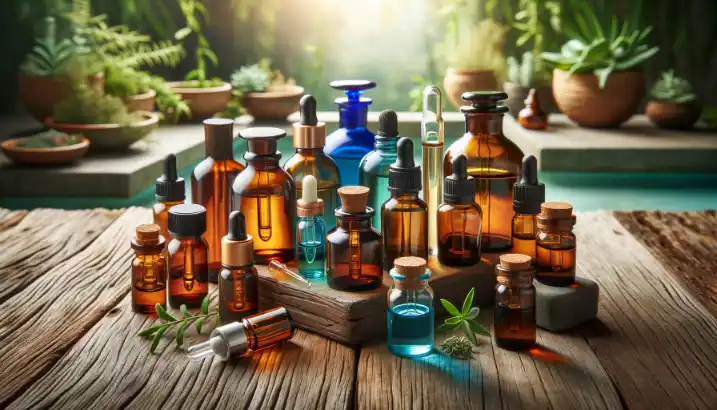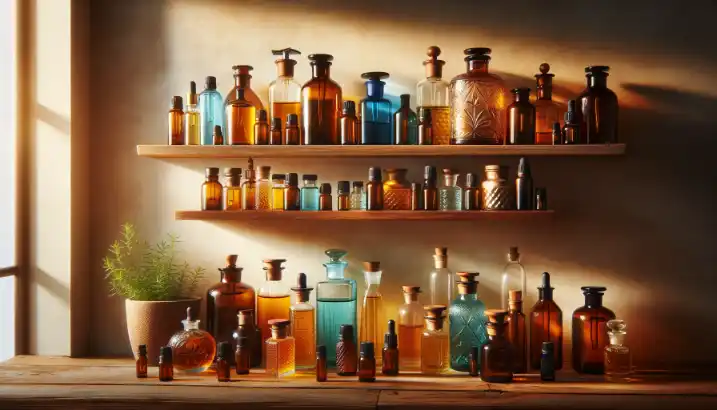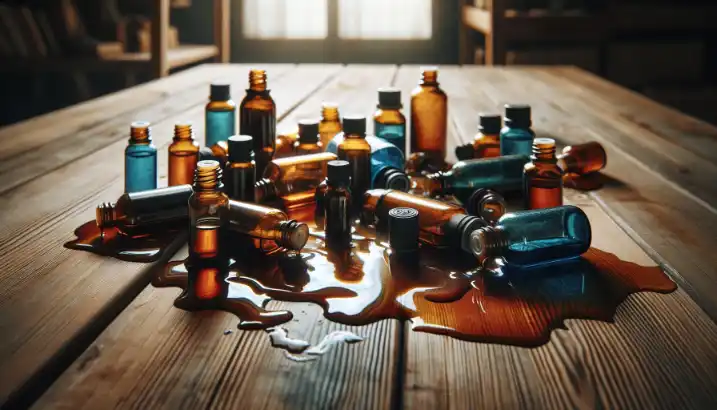Essential Oils Last Longer With These Storage Tips
Essential oils do expire through oxidization when exposed to air, light and heat, so it’s best not to use them past expiration dates of 2-8 years depending on type..
Essential oils provide a host of benefits, from stress relief to immune support. However, these precious oils can lose potency quickly without proper storage.
Follow these tips to help your oils last longer.
Why Essential Oils Expire
Once exposed to air, light, or heat, essential oils begin deteriorating through a process called oxidation. Chemical changes occur over time, causing the oil to lose its aroma, change color or texture, and become less effective.
Frequent opening of the bottle accelerates oxidation by allowing oxygen to enter. Sunlight and heat also damage the fragile plant compounds. Over time, contamination from fingers and moisture further break down the structure of the oil.
While essential oils don’t necessarily “spoil” like food, the chemical transformations make it difficult to determine if they are safe to use. For best results, essential oils should be used before expiration.

Biggest Causes of Short Shelf Life
Oxygen exposure each time the bottle is opened and reopened is one of the biggest factors in an oil’s deterioration. The more air entering the bottle, the faster oxidation occurs.
Heat and light also damage the delicate compounds in essential oils. Leaving bottles in hot places like inside cars or in direct sunlight significantly reduces how long the oil stays potent.
Even small amounts of contamination from fingers touching the rim or dropper can introduce microbes and moisture, accelerating spoilage.
Proper storage helps minimize these destabilizing factors.

Read: Fresh vs. Expired: Testing Young Living Essential Oils Expire
How to Store Oils Properly
Keep bottles tightly sealed and close cap immediately after use. Displace less air in opened bottles by storing in cool, dark places like a kitchen pantry or bathroom medicine cabinet.
Avoid heat and light by keeping oils out of direct sun. Do not leave bottles in places like in cars or near windows. Choose dark amber or blue glass bottles that naturally filter UV rays.
Use smaller sized bottles of 30 mL or 15 mL to limit oxygen exposure each time opened. Buy only what can be used up in 1-2 years.
Do not touch droppers to skin as this can transfer moisture and oils from fingers into the bottle, contaminating the oil.
Other Tips for Freshness
- Note the date opened on each essential oil label to keep track of age.
- Store oils in a small refrigerator to preserve compounds.
- Buy pure oils free of additives or carrier oils that degrade faster.
- Look for dark glass, tight lids, and orifice reducers that limit air exposure.
- Choose high quality oils like Isagenix Essential Oils or doTERRA Essential Oils.
The most expensive Young Living Essential Oils offer pure therapeutic-grade extracts. But proper storage techniques help budget oils last as well.
Signs Your Oil Has Expired
Watch for changes signaling degradation:
- Noticeable fading or alteration of the aroma
- Cloudy appearance, separation in the bottle
- Thickening or thinning of viscosity
- Murky texture compared to when first opened
Rancid essential oils may smell unpleasant or “off.” However, safety cannot be guaranteed after expiration, so avoid using oxidized oils.

Proper Disposal of Old Oils
Never dump expired oils down the drain, which can clog pipes and contaminate waterways. Check local regulations for hazardous product disposal. Contact your waste management company for guidance as well.
Before reusing empty bottles, soak thoroughly in hot water and soap. Rinse and allow to dry fully before adding fresh oil. Soaking in diluted rubbing alcohol can help remove lingering residue.
Conclusion
Storing your essential oils properly helps retain freshness and potency for longer. Follow these tips to maximize shelf life:
- Seal bottles tightly and keep away from light, heat, and air exposure
- Use smaller, dark glass bottles and note opening dates
- Refrigerate oils for added stability
- Watch for signs of expiration like aroma or texture changes
What’s your favorite essential oil and how do you store it? Let us know in the comments!

